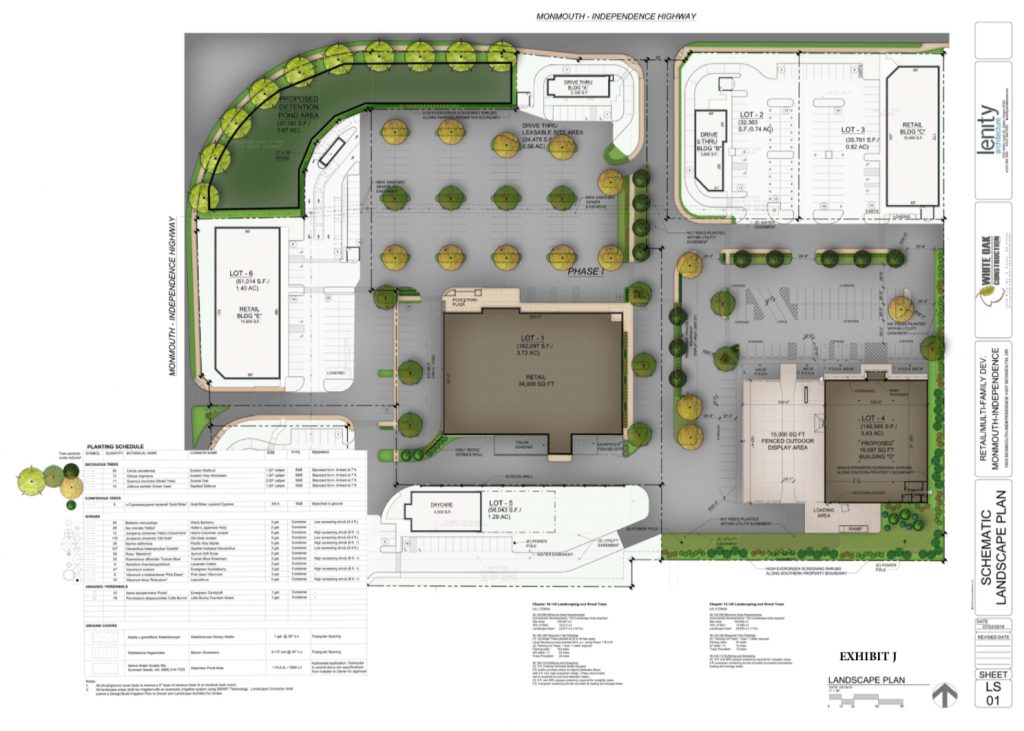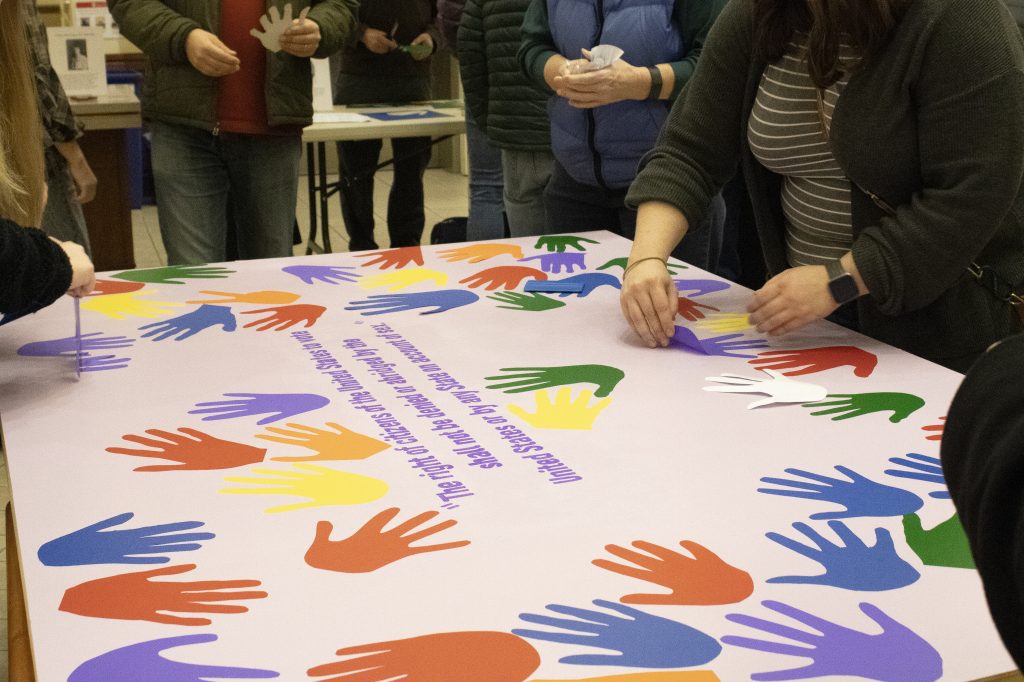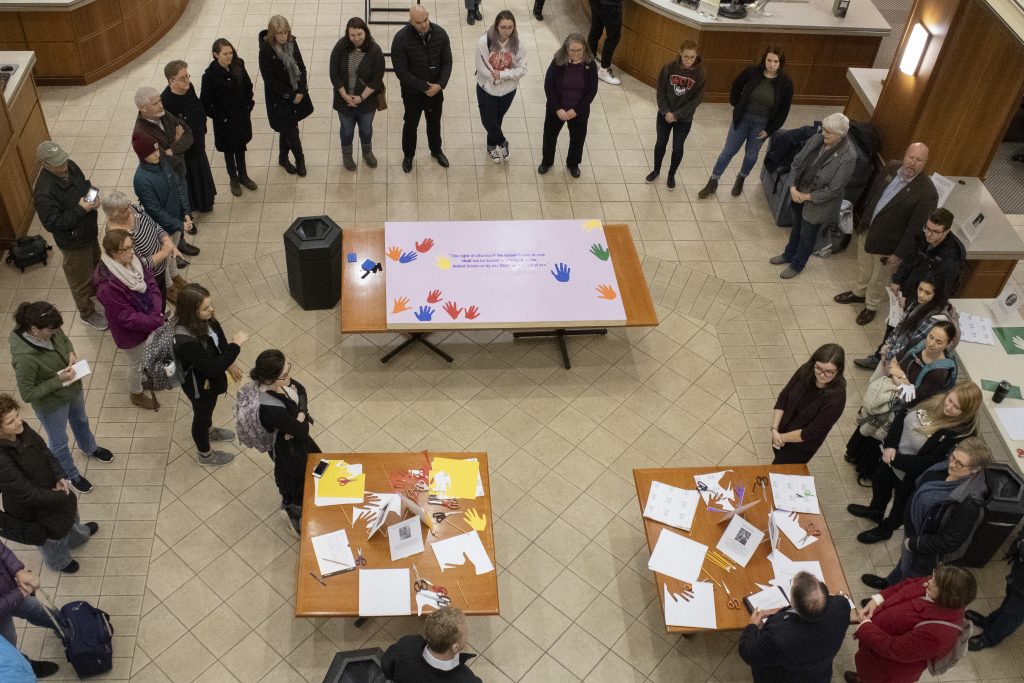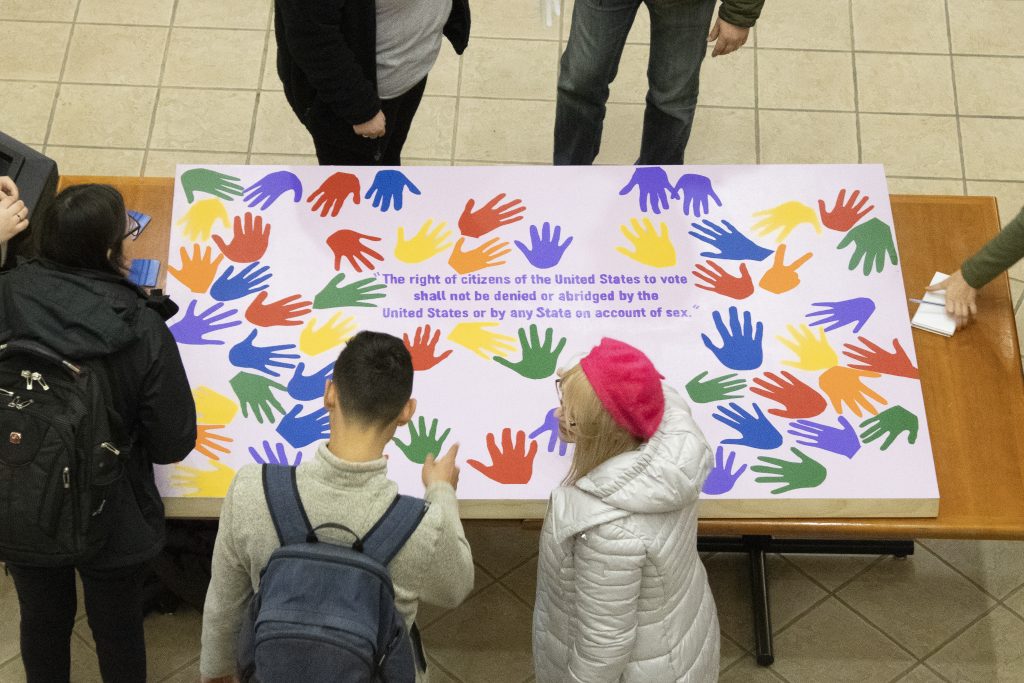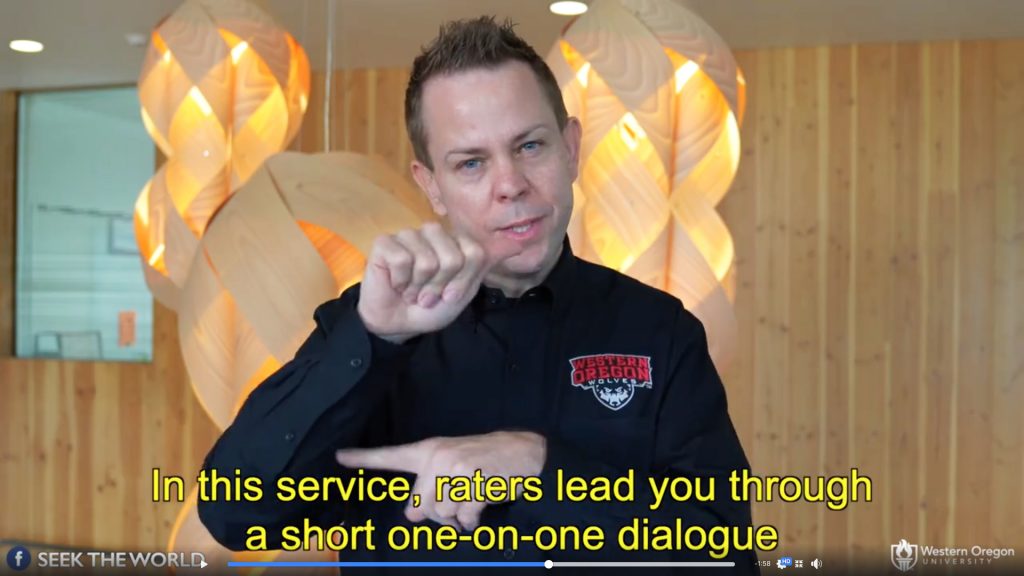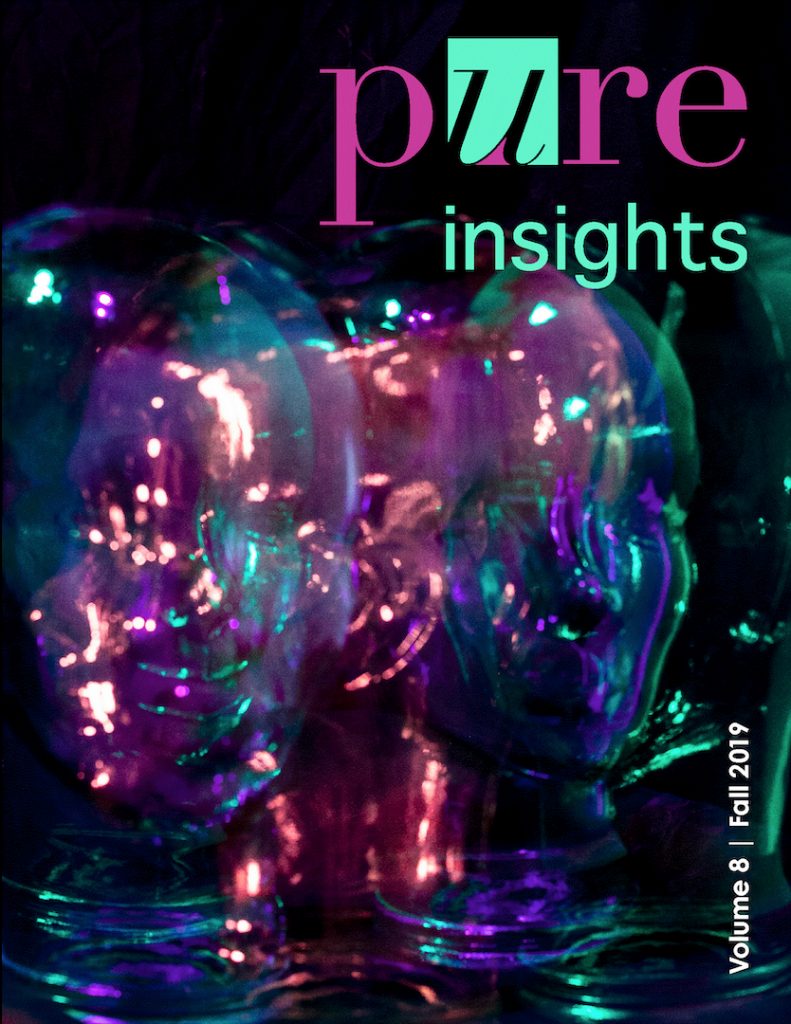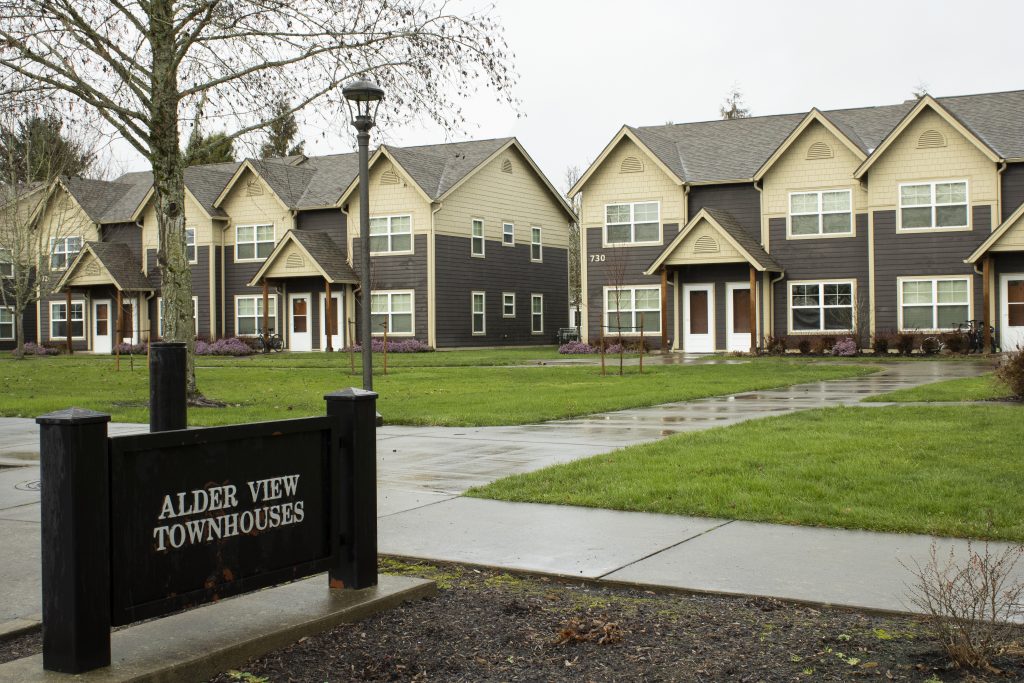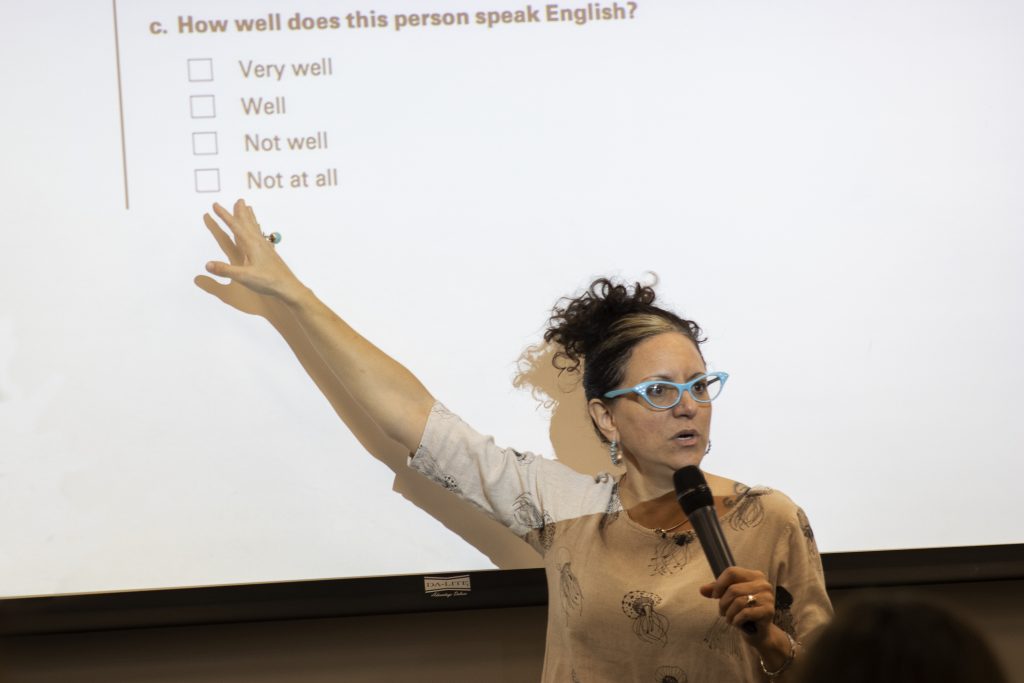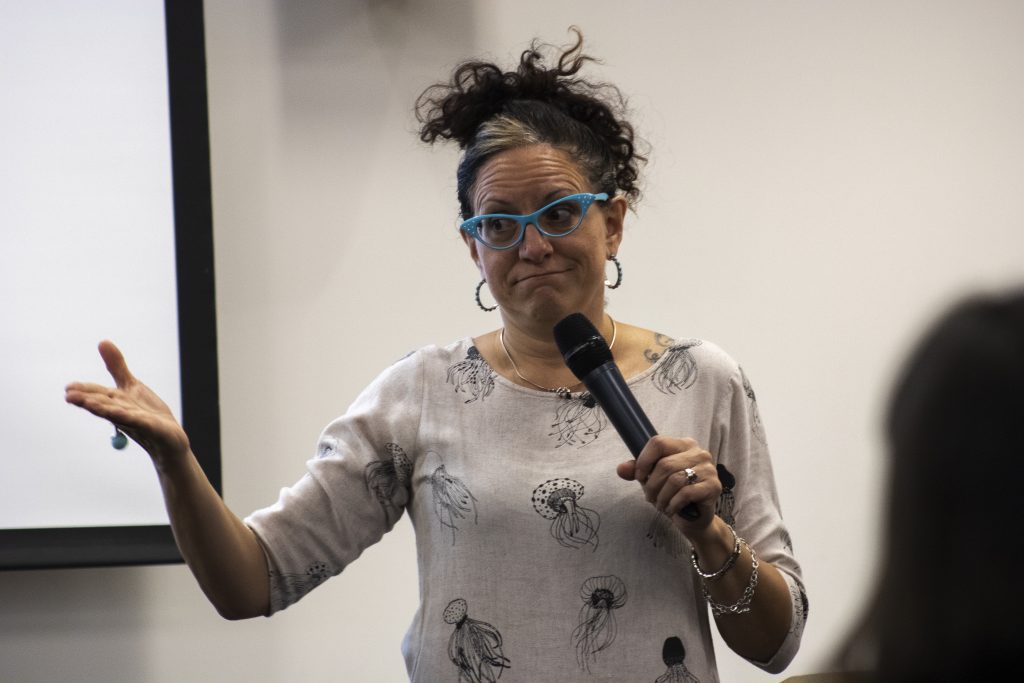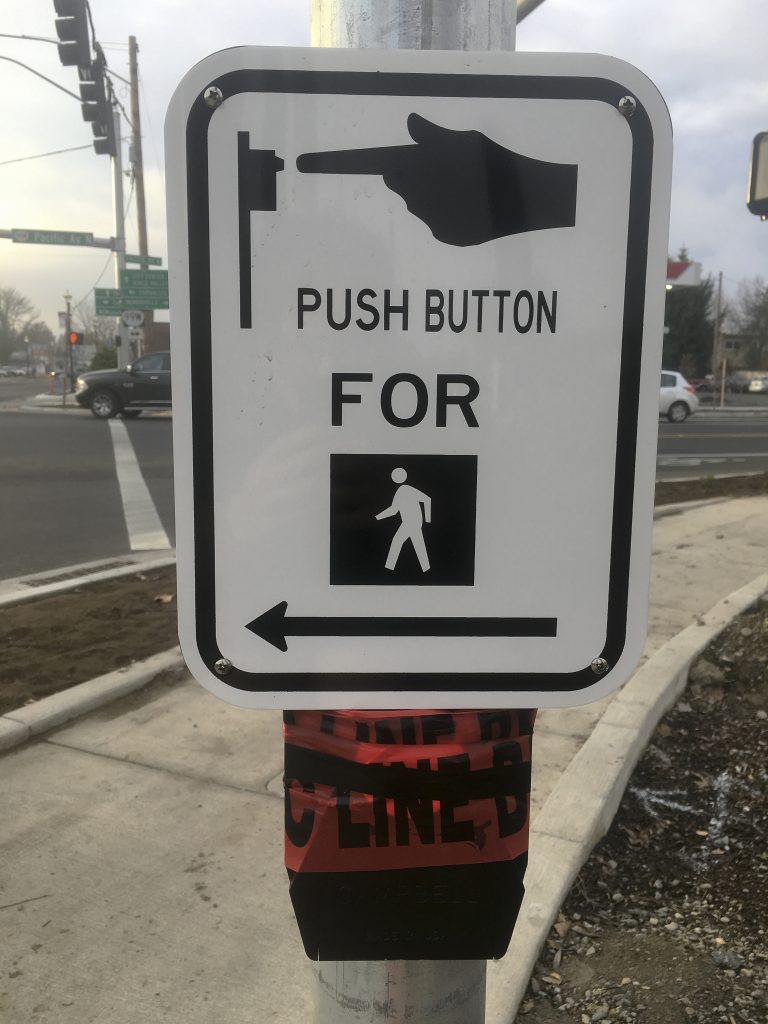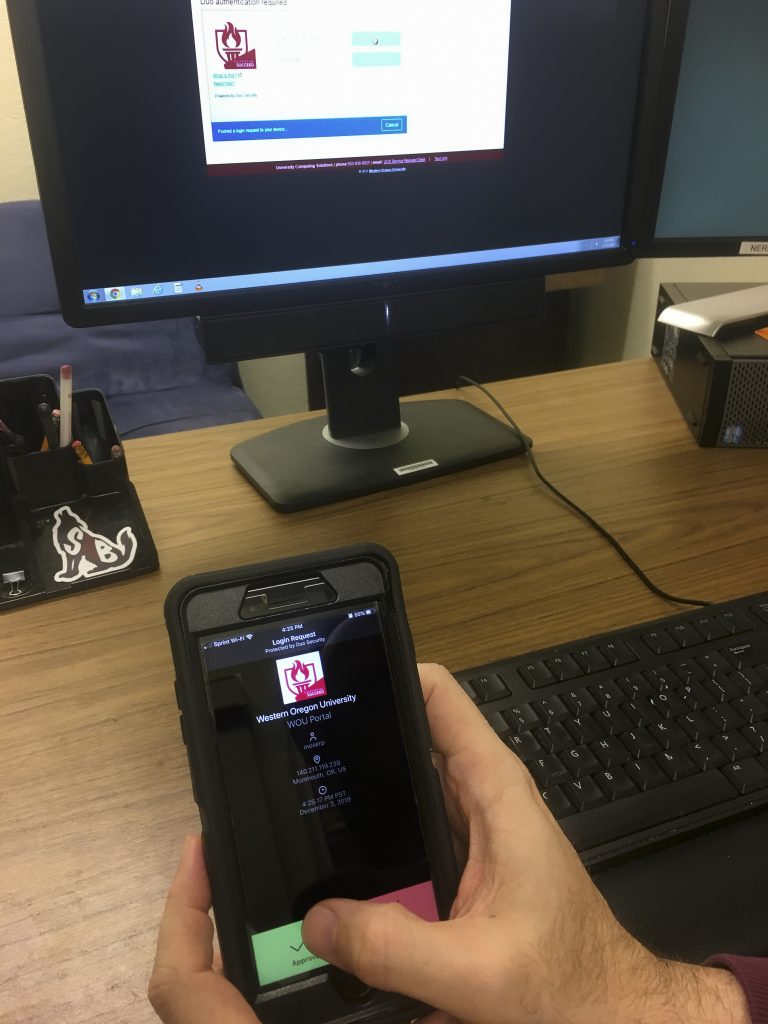Sage Kiernan-Sherrow | News Editor
Becoming an annual tradition, Family Weekend brings relatives and chosen family of Western students to campus for a three-day bonding experience and the chance to learn what Western has to offer. This year’s Family Weekend took place Jan. 24-26 and was packed full of activities and entertainment.
Day 1
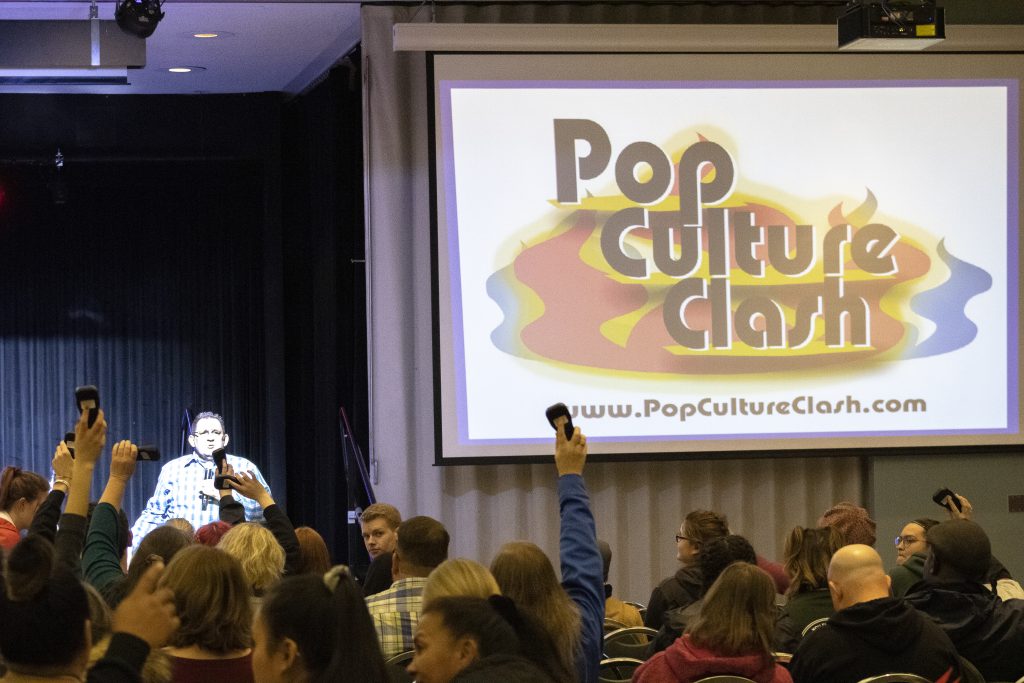
Following a warm welcome issued by President Rex Fuller, students and their families headed over to the Werner University Center to engage in some pop-culture trivia spanning generations. Those uninterested in that escapade had the chance to play a giant game of Hide ‘N Seek in the Hamersly Library.
Day 2
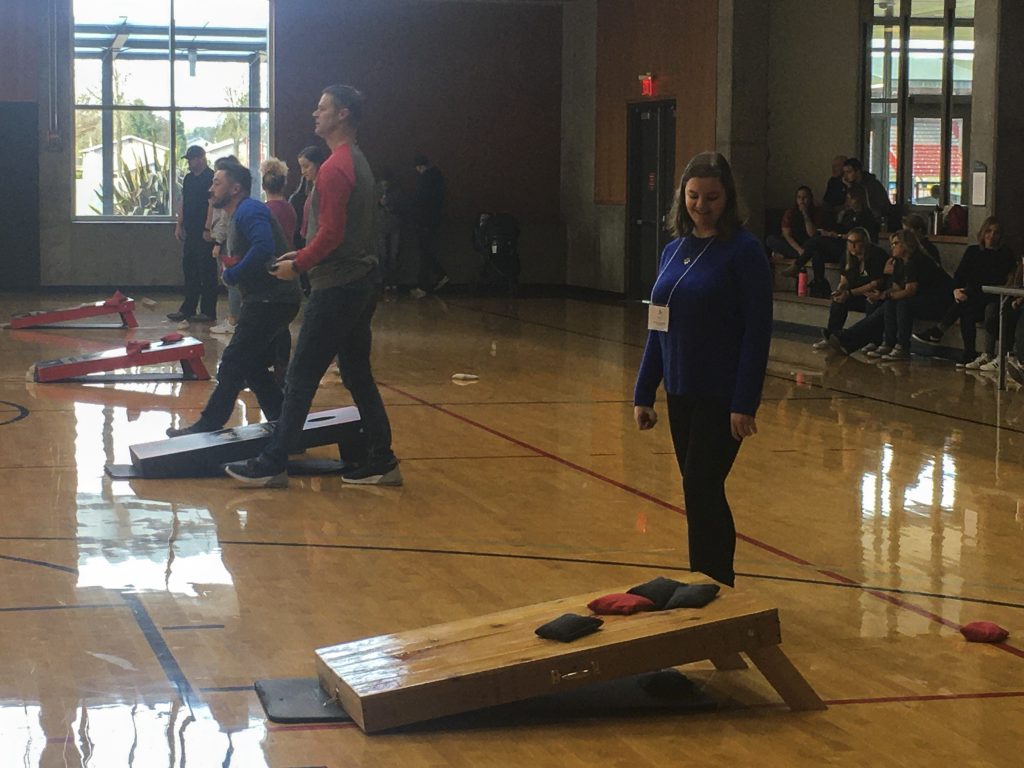
The WUC had a myriad of activities set up on Jan. 25, including a photo booth, crafting DIY Wolfie ears, the opportunity to get caricatured, bracelet-making and origami. While waiting in line for the caricature artist, the Mahoney family said they had enjoyed going to The Donut Bar near campus and that they were “looking forward to the show tonight,” regarding Western hosting comedian Jonathan Burns.
Over in the Willamette Room making bracelets, LeAnne, the mother of Western student Hailey Struble, said that she was reassured “seeing the way that (her) daughter is thriving and that she’s made a home.”
The WUC wasn’t the only place holding events on campus; over at the Student Health and Wellness Center, first-year Nate Henninger’s mother, Tracie Henninger, and the rest of their family waited for their turn during the Cornhole Tournament. Tracie said that the transition of Nate going to college wasn’t too hard, as they live only an hour away.
Day 3
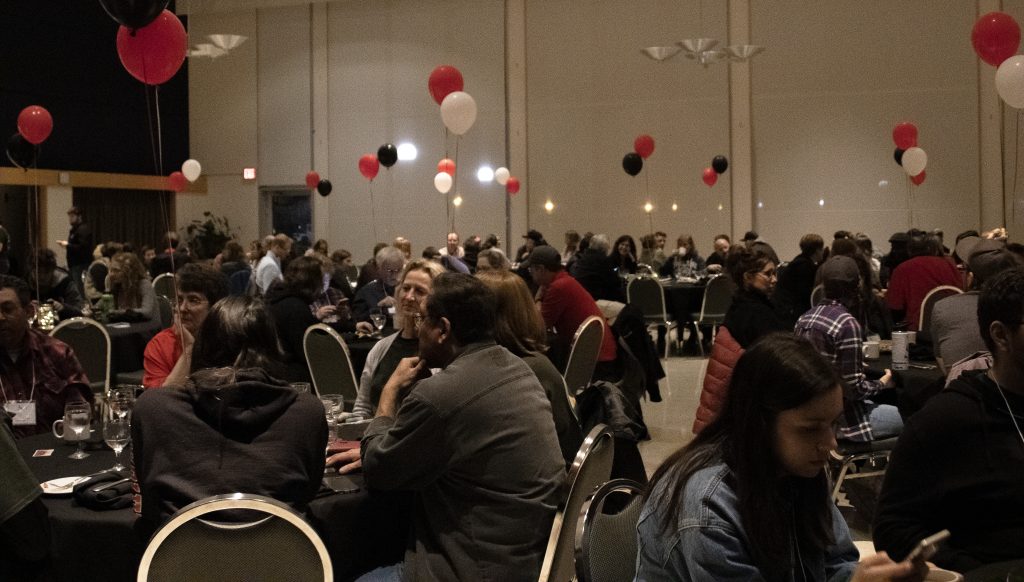
Sunday was all sunshine and goodbyes following the Brunch Send-off catered by Valsetz and the conclusion of on-campus activities like the scavenger hunt and the look-alike contest. Even though students prepared for the upcoming school day and parents went back to their jobs, the possibility of future bonding events like Family Weekend was a reassurance as they departed.
Contact the author at howlnews@wou.edu
Photos by Kay Bruley


